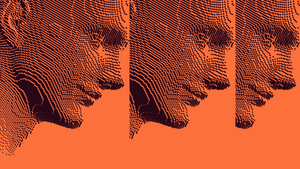Four US senators have released a discussion draft of proposed new laws that would make it illegal to produce or distribute an "AI-generated replica of an individual to perform in an audiovisual or sound recording" without the consent of that individual.
One of the senators proposing the new laws, Marsha Blackburn, says that performers and creators deserve the right to control their name, image and likeness - or 'NIL' if you prefer' - and "this legislation is a good first step in protecting our creative community, preventing AI models from stealing someone’s NIL, and ensuring that those rights are given primary consideration under the law".
There has been much discussion this year about AI models that can generate audio or video that imitates the likeness and/or voices of actors, artists and other public figures. In the context of music, the Ghostwriter track that imitated the vocals of Drake and The Weeknd got a lot of attention and is mentioned by the senators in a summary of their proposals.
AI models of this type are likely trained with existing content featuring the person being imitated. Copyright owners would argue that to do that, the AI company must first get a licence from whoever controls the copyright in the existing content. However, some AI companies argue that training AI in this way is covered by copyright exceptions in some countries or - in the US - the concept of fair use.
Even if the copyright industries successfully counter that argument and can therefore control what content is used to train AI by choosing to license, or not, each model, many actors and artists don't own the copyright in the films and tracks on which they appear.
In that scenario, the actor or artist would likely rely on the concept of publicity or personality rights to control use of their likeness or voice. However, how publicity rights work varies quite a bit around the world and, in the US, from state to state.
The proposed new law would provide much clearer protection for actors and artists in this domain. If anyone used generative AI to imitate a person's likeness or voice without permission, they "would be liable for the damages caused by the AI-generated fake".
Alongside Blackburn, the proposals are backed by Thom Tillis, Chris Coons and Amy Klobuchar, so two Republicans and two Democrats. The new law has the rather clunky name of the Nurture Originals, Foster Art and Keep Entertainment Safe Act. Because that makes it the NO FAKES Act. Lovely.
The music community has been calling for clearer protections for artists when it comes to likeness and voice in recent months. And the Recording Industry Association Of America recently said that the US government should add websites that facilitate the generation of unauthorised voice clones to its Notorious Markets list of piracy sites.
Yesterday the trade group welcomed the NO FAKES Act, stating: “Our industry has long embraced technology and innovation, including AI, but many of the recent generative AI models infringe on rights - essentially instruments of theft rather than constructive tools aiding human creativity".
"We applaud Senators Coons, Blackburn, Tillis, and Klobuchar for recognising that unauthorised uses of one’s name, image, likeness and voice are a clear threat to artists, songwriters, performers, authors, journalists, photographers and the entire creative community”, it added. “We look forward to engaging in a robust bipartisan process with a strong bill that effectively protects against this illegal and immoral misappropriation of fundamental rights that protect human achievement".

